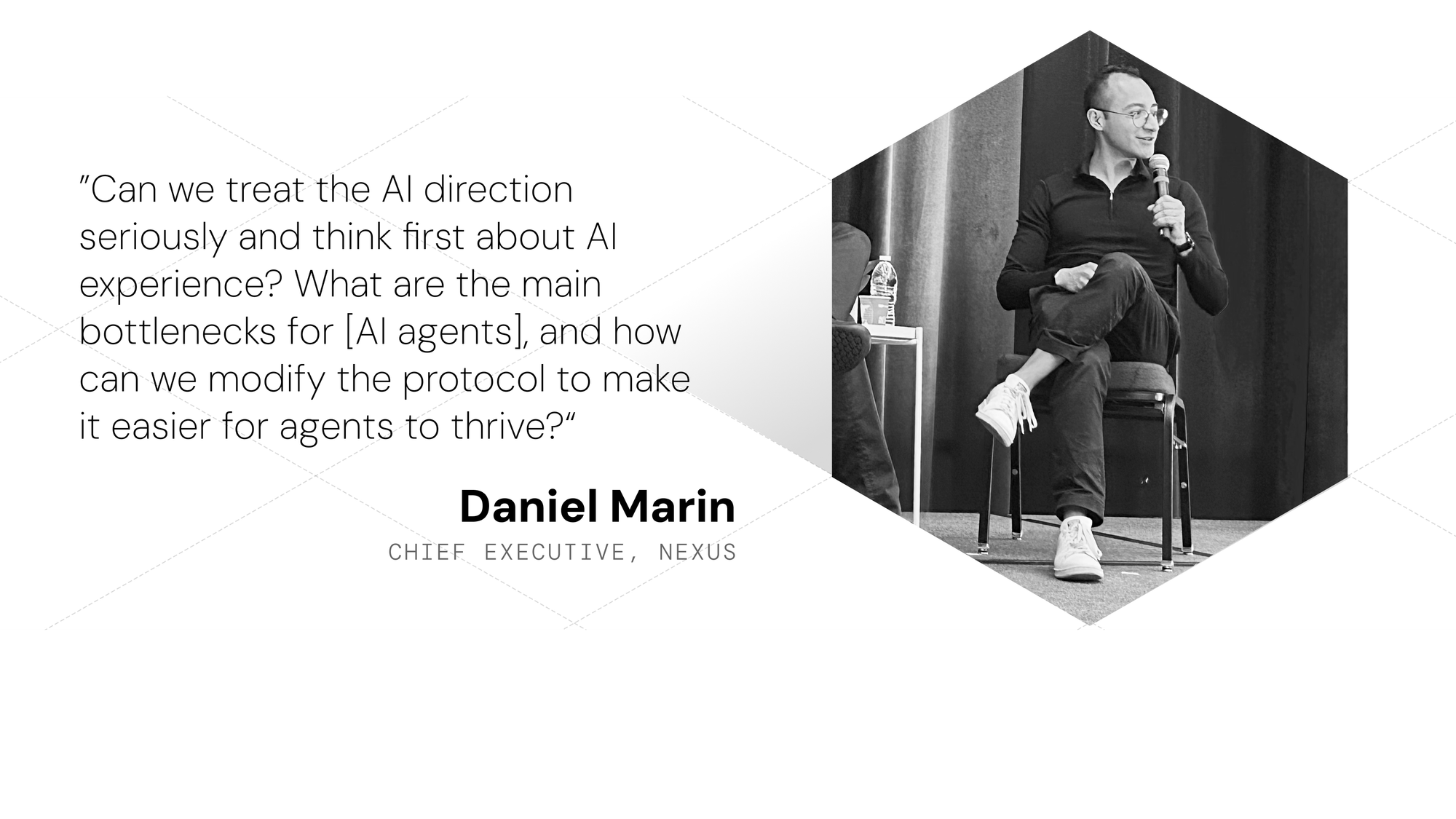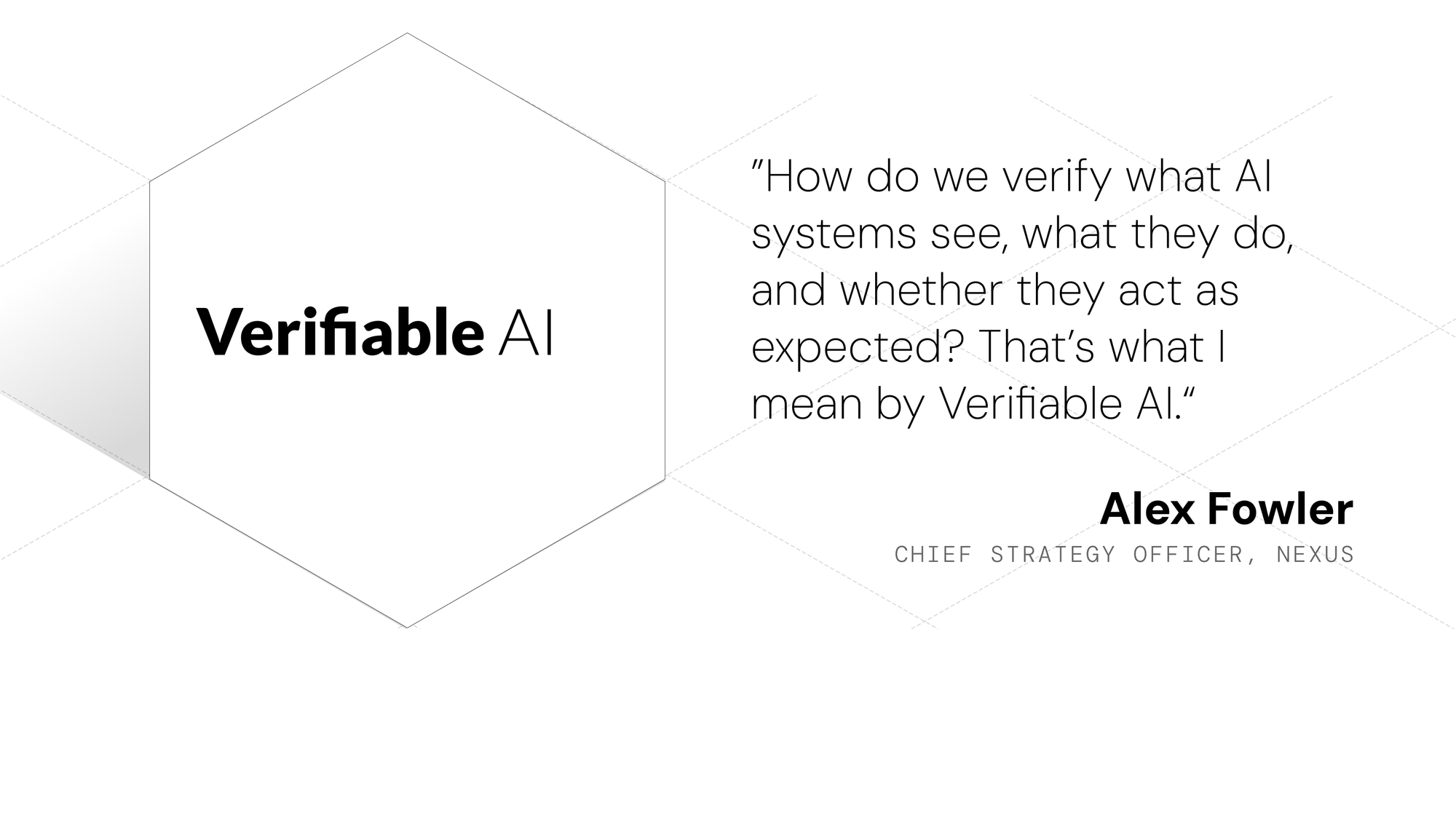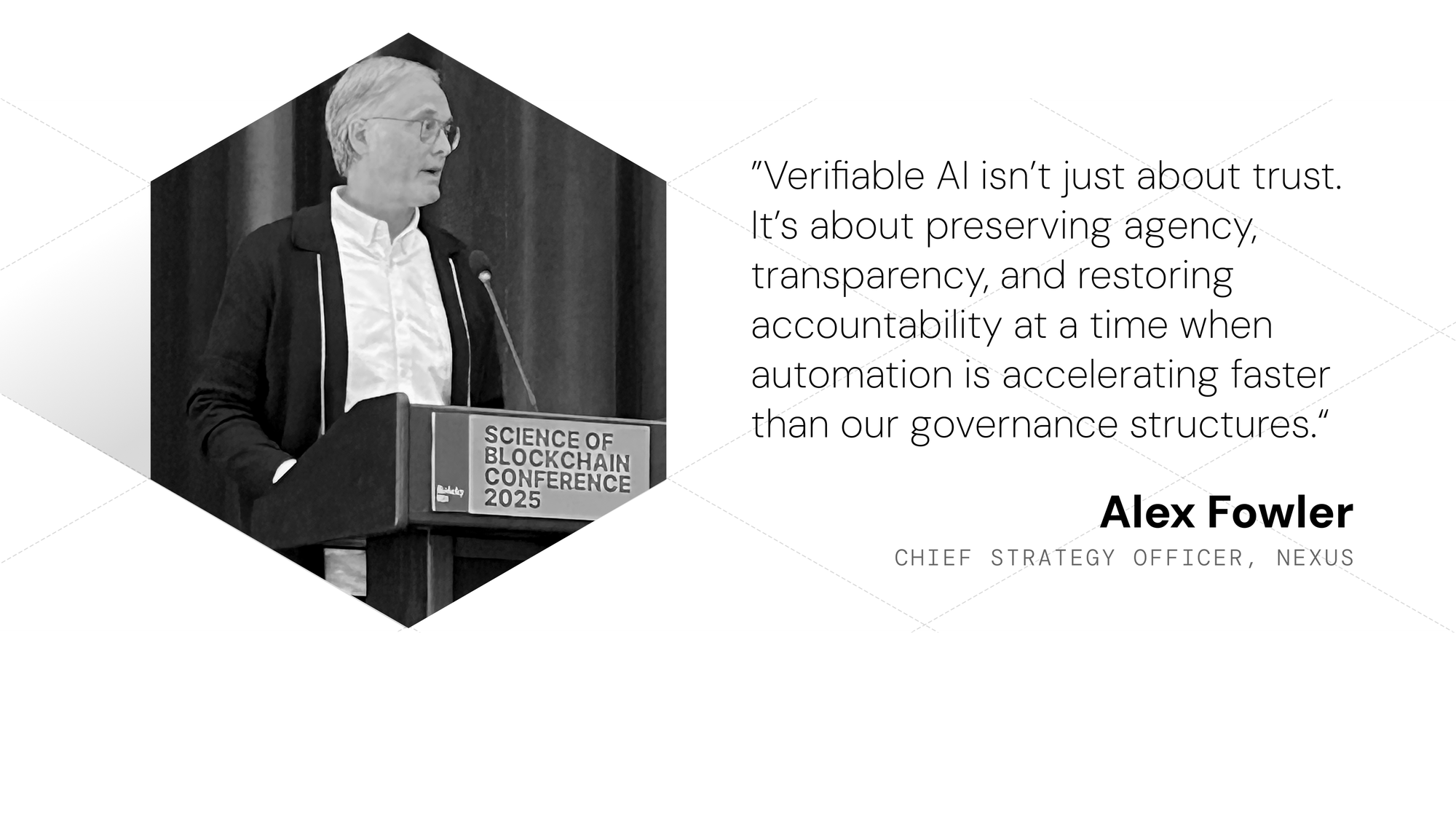Exponential Episode 25: Invisible Infrastructure
In this episode of Exponential, Jin Kwon, co-founder of saga.xyz, explains how blockchain infrastructure will disappear into the background.

At BASS 2025 and SBC’s Decentralized AI Summit, Nexus leadership laid out a bold vision for the future of AI and blockchain. CEO Daniel Marin and Chief Strategy Officer Alex Fowler aren’t just talking about convergence — Nexus is building infrastructure for it.
Daniel used his BASS fireside to spotlight a fundamental mismatch: today’s blockchains weren’t designed for AI. EVM logic, gas retries, and developer workarounds all slow down what should be seamless agent interaction.

Nexus flips that on its head. Our blockchain is purpose-built for agents — with native support for natural language endpoints, optimized coordination, and readable logs. Rather than retrofitting AI into crypto, Nexus rethinks the protocol from the ground up.
This design choice also challenges crypto orthodoxy. While most new L1s lean into modularity, Nexus embraces monolithic architecture to enshrine performance-critical features at the base layer.

Alex’s talk at SBC zoomed out to ask a deeper question: in a world filled with autonomous agents and opaque models, how do we restore trust? His answer: cryptographic verifiability.
He outlined four key vectors where AI and verifiability intersect — from auditing code with AI, to proving model inference, to constraining economic agents with on-chain guarantees. Nexus’ architecture is designed to support these interactions at scale.
But his message wasn’t just technical. Alex warned of a leadership vacuum in AI — a world where regulation is weak, ethics are sidelined, and accountability is rare. Verifiable AI, he argued, isn’t optional. It’s the only way to preserve transparency and control in a rapidly automated world.
Alex closed with both optimism and a warning. The tools to build a Verifiable Internet already exist — Nexus and others are developing them now. But the question is no longer what’s possible. It’s whether we will choose to build with integrity.

The future of intelligence will be decentralized, inspectable, and agent-native. That trust won’t come from faith — it will come from proofs.